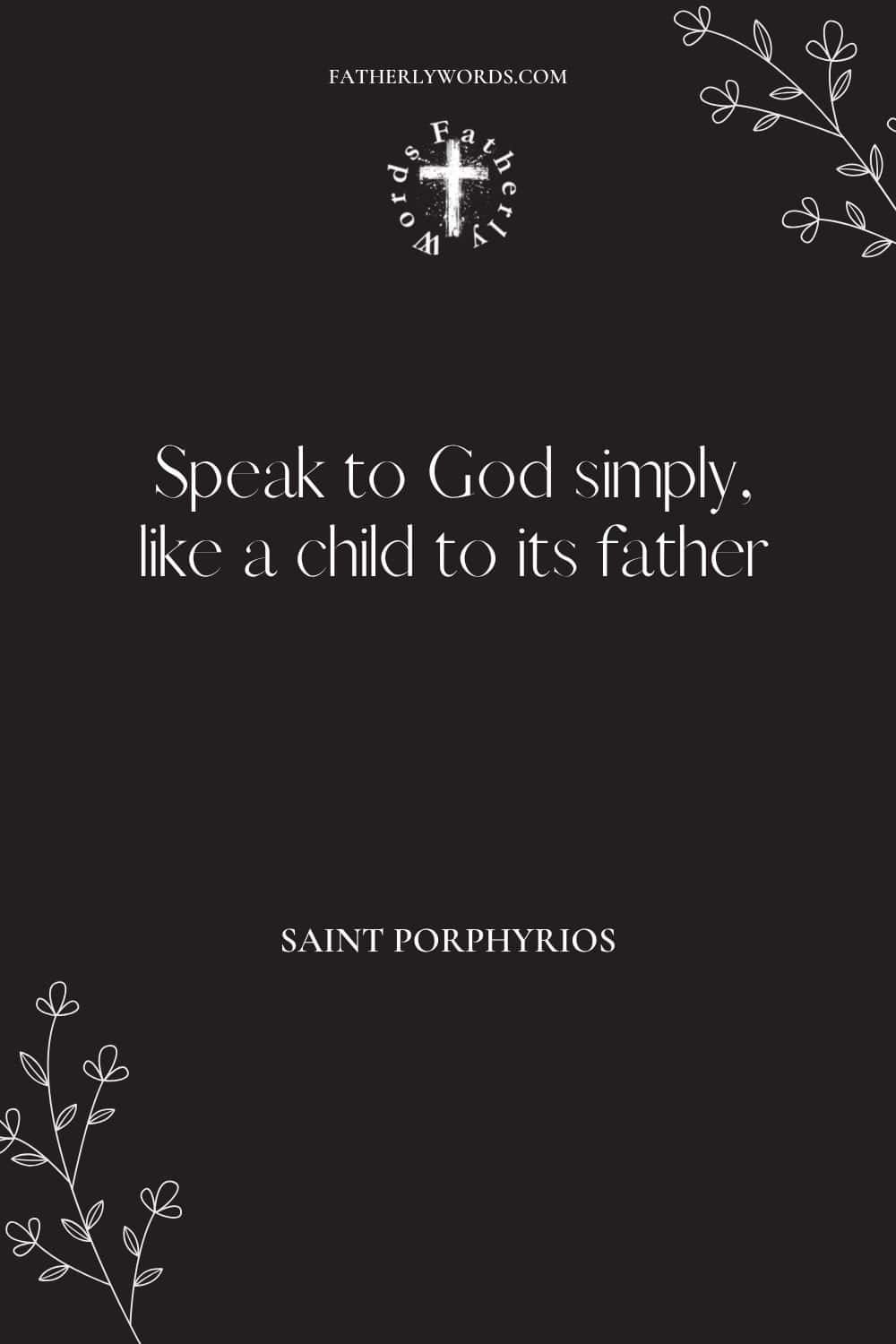In every Orthodox Christian temple, icons of saints surround the faithful. Their faces radiate peace, and their presence reminds us of the great cloud of witnesses who stand before the throne of God.
Yet many ask a simple question: when we pray to a saint, can they truly hear us?
How do they know our requests? And how does their intercession reach God?
These questions arise not from doubt but from a desire to understand the mystery of the Church, both in heaven and on earth.
Orthodox Christianity answers these questions clearly, based on the teachings of the Holy Scriptures and the Holy Fathers. The saints do not hear as earthly people hear, but God Himself makes our prayers known to them through His will, His angels, and His grace.
The Communion Of The Saints In Orthodox Christianity
The foundation of all prayer to the saints is the reality of the Church as one Body in Christ. The Apostle Paul writes:
“Now ye are the body of Christ, and members in particular”
1 Corinthians 12:27
The saints are not separate from us but alive in Christ, sharing in His divine life.
In Orthodox Christianity, death does not destroy this communion. The saints who have fallen asleep in the Lord remain members of the same Body, united to the faithful through the Holy Spirit. This is why the Church on earth and the Church in heaven are not two churches but one living reality.
Christ Himself affirmed that the saints live in Him:
“He is not the God of the dead, but of the living, for all live to Him”
Luke 20:38
The righteous, even after death, remain conscious, active, and full of love. Their life in God is not sleep or silence but praise, intercession, and unceasing glorification.

Why Orthodox Christians Pray To The Saints
When Orthodox Christians say, “Holy Great-Martyr George, pray for us,” they are not asking Saint George to replace Christ. They are asking for his prayer before Christ.
It is the same as asking a holy friend to pray for us, but in a higher and more perfect way, since the saints are close to God and see Him face to face.
The Church’s prayers and hymns are full of this relationship: “O all-holy Mother of God, save us,” or “Saint Nicholas, intercede for us before Christ our God.”
These phrases express spiritual communion, not idolatry. The saints are not gods but servants of the one true God.
The Holy Fathers often explained this truth. Saint John of Damascus wrote:
“The saints are the friends of God, and as friends they have great boldness before Him.”
Saint Basil the Great taught that:
“the memory of the righteous is accompanied by their intercession.”
The saints pray not in separation from Christ but within His love, and their prayers are powerful because they are united to His will.
How Do The Saints Hear Our Prayers?
The saints do not hear with physical ears. They are not spirits roaming the world, nor do they watch every event on earth.
Their knowledge of our prayers comes from God Himself. The Lord, who knows every heart, reveals to them the prayers of His people according to His divine wisdom.
In some cases, God sends His holy angels to communicate these prayers. The angels are messengers of divine grace, carrying our petitions and delivering God’s response. In the Book of Revelation, Saint John saw:
“the prayers of the saints ascending before God from the angel’s hand”
Revelation 8:4
Thus, when we pray to Saint Demetrios, Saint Nicholas, or any of the righteous, our prayers ascend to God, and He may make them known to that saint so that the saint intercedes for us.
The miracle that follows is not an act of human power but of divine mercy. God chooses to glorify His saints, showing His love through their intercessions.
Saint John Chrysostom explains that:
“the saints, even though they have departed this life, are still united with us through love and through the prayers they offer to God for us.”
Their hearing is spiritual, not natural. They hear because they live in the Light that fills all things.
The Will Of God In The Intercession Of The Saints
No saint acts independently of God. Every miracle, every healing, and every answer to prayer comes from God through His saints. As Saint Gregory Palamas said:
“The saints are vessels of divine grace, through whom God works for the salvation of the faithful.”
When a believer prays to a saint, the prayer is ultimately directed to God. The saint intercedes, and God grants the request if it is for our salvation.
This cooperation reveals the divine love that unites heaven and earth. God wills to honor those who honored Him in life, fulfilling His promise:
“Them that honor Me I will honor”
1 Kingdoms 2:30, LXX
For this reason, the Church encourages the faithful to form relationships with the saints, to speak to them as brothers and sisters in Christ, and to ask their prayers as one would ask a dear friend. This is not superstition but an expression of love within the Body of Christ.
The Role Of The Angels
In Orthodox Christianity, the angels are also part of this divine communion. They are the unseen servants of God, mediating His will and carrying messages between heaven and earth. It is through them that the prayers of the faithful often reach the saints.
As the Archangel Raphael said in the Book of Tobit:
“I presented your prayer before the Holy One”
Tobit 12:12
This angelic ministry continues within the Church. The angels rejoice when a sinner repents (Luke 15:10), and they surround the faithful during prayer.
They also minister to the saints, joining their voices in praise to the Lord.
Therefore, when we pray to a saint, we are not reaching into an empty sky but into the living communion of the heavenly Church, filled with angels and glorified souls united in Christ.
The Glory Of The Saints Is The Glory Of Christ
Every time a miracle is performed through a saint’s prayer, it is not the saint’s personal power that acts but the grace of God working through them. Christ is the true source of every gift and every wonder. The saints are reflections of His light, like candles lit from the divine flame.
Saint Symeon the New Theologian wrote that:
“the saints become by grace what Christ is by nature.”
They shine with the uncreated light because they are filled with the Holy Spirit. Their intercession reveals the unity of heaven and earth in Christ.
When God grants a miracle through a saint, He is not only answering a prayer but also glorifying that saint as a witness to His truth.
This is why we see icons, relics, and feasts dedicated to the saints. They remind the faithful that the Church is alive and that holiness is possible for every Christian who loves God.
The Scriptural Foundation Of Intercession
The intercession of the saints is firmly grounded in the Holy Scriptures. The Book of Revelation depicts the saints offering prayers before God:
“And the smoke of the incense, which came with the prayers of the saints, ascended up before God out of the angel’s hand”
Revelation 8:4
In the Old Testament, we also see intercession as a sacred act. Moses prayed for the people of Israel, and God forgave them (Exodus 32:11-14).
Job offered sacrifices for his friends, and God accepted his prayer on their behalf (Job 42:8-9).
If the prayers of the righteous on earth have such power, how much more those who now stand before the throne of God?
The Psalmist declares:
“Precious in the sight of the Lord is the death of His saints”
Psalm 115:6 LXX
Their souls live in His presence, and their prayers continue as part of His eternal worship.
From Abraham To Christ: How God Prepared Humanity For The Savior
Differences Between The Modern World And Orthodox Christianity On This Question
- Many today believe in direct self-reliance; Orthodox Christianity teaches interdependence within the Body of Christ.
- Modern spirituality speaks of energy and self-power; Orthodox Christianity speaks of divine grace working through holy persons.
- Some think the saints are dead and inactive; Orthodox Christianity proclaims them alive and glorified in God.

- The world treats death as final; Orthodox Christianity treats it as transformation and victory in Christ.
- Secular views reject angels and miracles; Orthodox Christianity affirms their constant presence and ministry.
- Modern thought promotes communication with spirits; Orthodox Christianity strictly forbids such contact and directs prayer only to God and His saints.
- Many believe saints are historical heroes; Orthodox Christianity venerates them as living members of the Church.
The Spiritual Benefit Of Praying To The Saints
When we pray to the saints, our hearts are lifted toward heaven. We are reminded that the Church is not confined to this world but includes all who live in Christ.
The saints inspire us by their example and strengthen us through their prayers.
The act of asking for a saint’s intercession nurtures humility. It teaches us that we are not self-sufficient, that we need the help of others, and that love continues beyond death.
The saints stand as proofs that holiness is not an idea but a lived reality.
Saint Isaac the Syrian wrote:
“The remembrance of the saints works joy in the soul.”
To remember them is to remember the victory of Christ in human lives. Their intercession connects our earthly prayers to the eternal praise of heaven.
Praying To The Saints In Daily Life
Every Orthodox Christian can develop a relationship with the saints. This happens through reading their lives, venerating their icons, and asking their prayers with faith.
When you face temptation, call upon your patron saint.
When you are ill, pray to a healing saint like Saint Panteleimon.
When you travel, remember Saint Nicholas.
The saints are not far away. They are near to us in spirit.
The Church’s calendar, filled with feast days, is not a list of names but a living testimony that the Kingdom of Heaven is already among us.
The saints intercede, and God answers. This truth fills Orthodox Christianity with hope and beauty.
Explaining This To Children
Parents can tell children: “The saints are our friends who live with Jesus in heaven. They love God very much, and because they are close to Him, they can ask Him to help us. When we pray to a saint, we are really asking them to tell Jesus what we need. God listens to their prayers because they are holy. We don’t worship them, we just ask for their help.”
Children can also learn that saints were real people who loved Christ and lived like Him. They can read about Saint George, Saint Nicholas, or Saint Demetrios, and understand that holiness is not impossible.
When children light a candle and whisper a prayer, they are part of the same holy Church that stretches from earth to heaven.